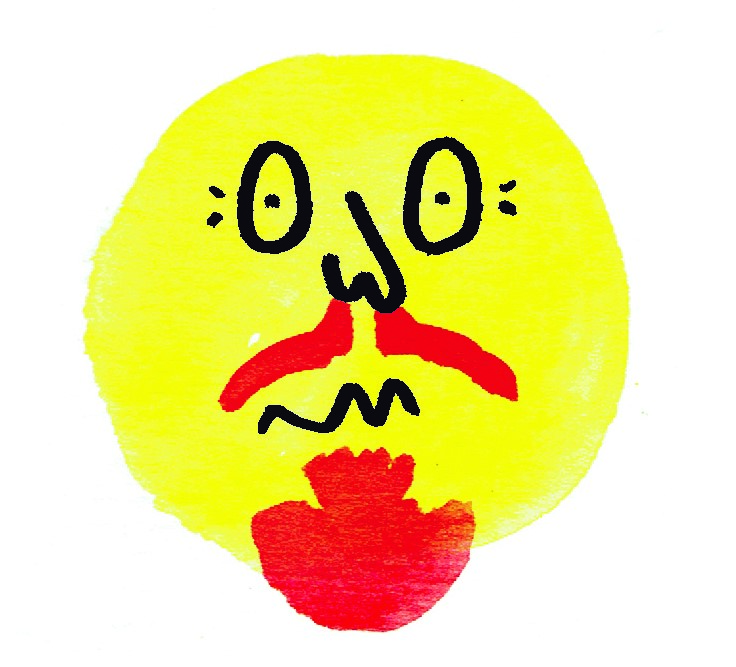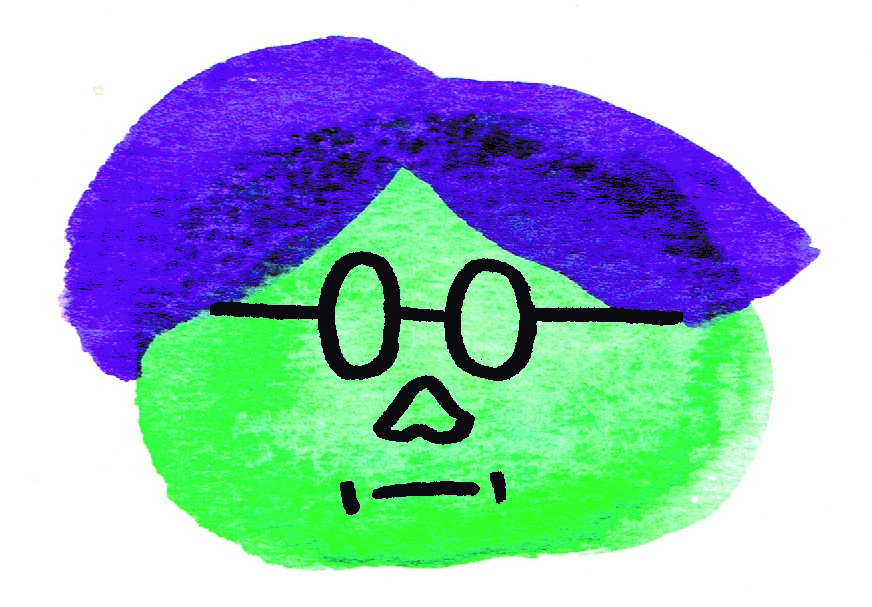After countless hours of solitary creation, a new zine is born! Now your average, introverted exhibitor must brace for the hard part: a crowded, vibrating zine fair.
Accessible show spaces can help nurture important alternative media, but the marketplace environment can be stressful. Individual makers have to face their own feelings of doubt, defensiveness, or vulnerability just to make a sale. Add in all the socializing and it’s enough to make you want to hide under your table!
Being nervous or overwhelmed about exhibiting at a zine fair is normal. So, we sat down with a few zinesters and expert tablers to ask their advice: Rabeea Syed, the zinester behind Where I Am/Where I Am Not; Synthia Nicole, who makes Damaged Mentality Zine and co-organizes the Twin Cities Zine Fest; Sonali Menezes, creator of Glittering Magpiee; Aviva Cohen, co-editor of Static Zine; and Natalie Amber of Guelph’s Take Time Vintage shop.
Next time you’ve got tabling jitters, remember these self-care experiences from your fellow zinesters. More likely than not, everything will be okay.
Hot Tips!
Be prepared.
Developing a set-up strategy avoids stress. Besides having standard supplies, plan for the unexpected.
- “I’ve tabled where I was in a dark spot, and no one could read my stuff. I always bring a lamp with an extension cord, just in case.” — Sonali
- “Give the organizers a heads up about any accessibility needs when you’re applying.” — Synthia
- “I can’t just jump into it. I need to know before-hand that I’m going to talk to people and have it not drain the life out of me.” — Rabeea
Snacks!
A generous supply of your favourite treats can make the difference between a happy and hangry day. Pack extra snacks to share with other exhibitors. Along with swapping zines, tasty trades await.
- Keep reusable mug with herbal teas, like skullcap or chamomile, to calm down. “Anything to help chill out.” — Sonali
- “Things that help me are coffee and Ativan if I get overwhelmed. We always go out for a good-job-team meal afterwards … Sometimes dump-lings will get you through the toughest stuff.” — Aviva
Breaks!
As a self-publishing maven, you’re the boss! Be good to yourself, and get away.
- “Even though you have a table, you don’t have to stay there all day.” — Sonali
- “One of the organizers or volunteers can watch your table so you can collect yourself a bit and take a walk. Check out the area to know which direction you’d like to go.” — Synthia
- “I stretch, snack and walk through the space and identify who I want to buy/trade with.” — Natalie
- “I pray five times a day, so I find it really useful to take breaks for that.” — Rabeea
What ifs: Real Scenarios
What if someone comes at me with a bad attitude?
Zines can educate, but unfortunately, not everyone at a show is open to learning. Rabeea, for one, has encountered hostility while tabling.
“A lot of my work is related to being Muslim and brown,” she says. “I have to prep myself for disbelief of the fact that people say racist stuff to me in Toronto.”
Rabeea has developed strategies for keeping aggressors at bay. “If someone wants to argue with me, [I ask myself,] ‘how do I fight back?’” she says, “I use examples of the kinds of things people might say and think, ‘This is how I responded last time, how did that go?”
“I usually table with friends,” she adds. “I’ll let them know, ‘If somebody’s doing that, please get me out the situation.’”
 Many shows enact safe space policies. If an event hasn’t done so, ask the organizers to implement one. A policy will clearly state unacceptable behaviour, creating the grounds to respond to offenders.
Many shows enact safe space policies. If an event hasn’t done so, ask the organizers to implement one. A policy will clearly state unacceptable behaviour, creating the grounds to respond to offenders.
What if you’re not in the mood to be social?
Let’s say the day of the zine fair arrives, but you’re not feeling chatty. What now?
“I don’t feel obligated to talk to everyone. I don’t want to have to be a salesperson,” says Natalie. “I want people to enjoy something if they’re going to and not take it personally if they don’t. People don’t want to be pushed. It’s enough to say hi and let some-one make their own choices.”
Rabeea agrees: “I don’t worry about what people think about me, because it’s very unlikely I’m going to see them again.”

